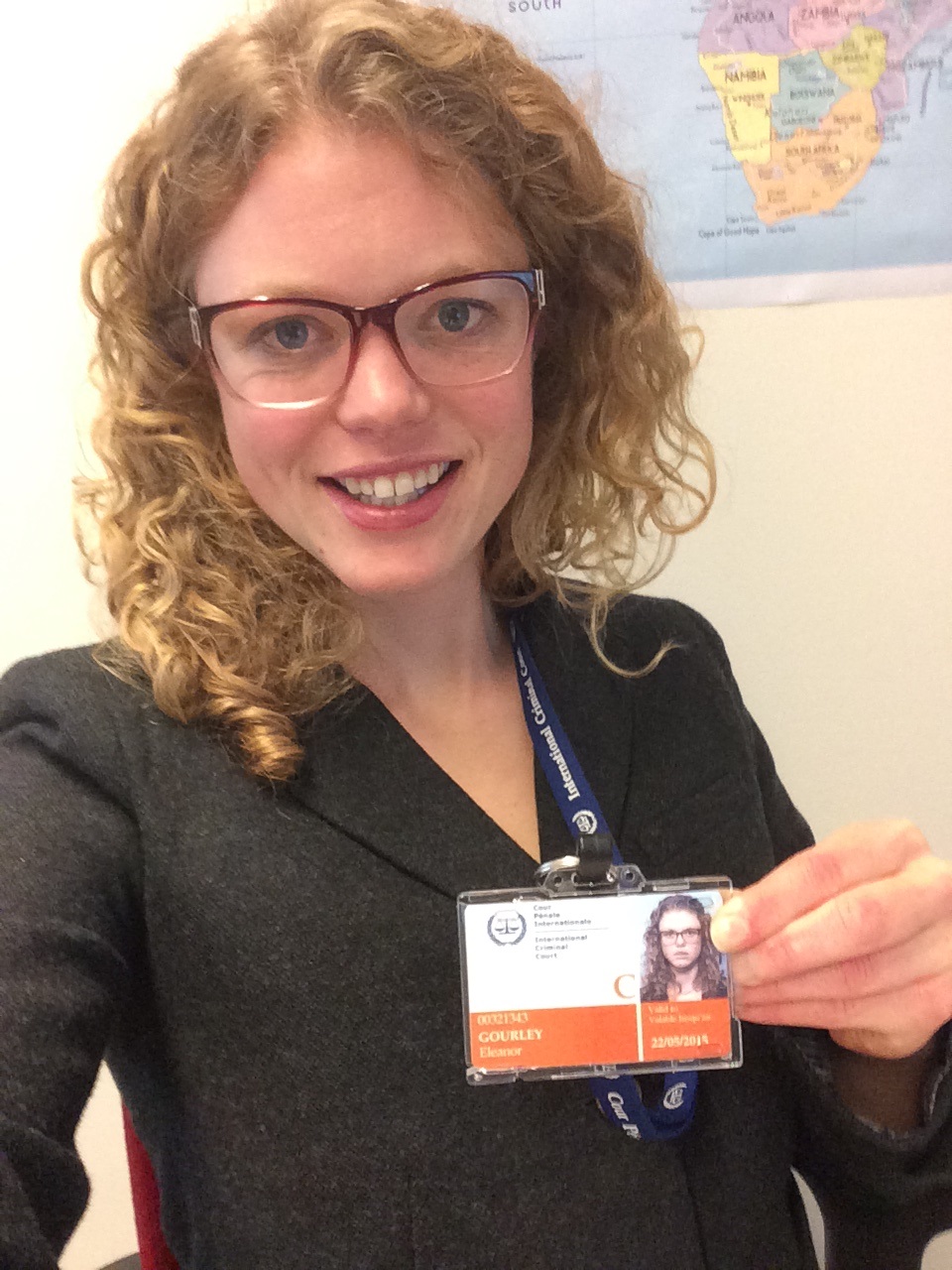By: Eleanor Gourley
February 4, 2015
The afternoon of Monday January 26th, 2015, found the International Criminal Court (ICC) buzzing with visitors and journalists. The viewing gallery of Pre-Trial Chamber II was full as Dominic Ongwen appeared before the Single Judge, Judge Ekaterina Trendafilova, for his initial appearance on charges relating to his alleged actions as Brigade Commander of the Sinia Brigade in the Lord’s Resistance Army (LRA).
Dressed in a navy suit, Mr. Ongwen stayed calm, though perhaps a bit stunned, through the hearing, standing and speaking in his native language, Acholi, in response to a few questions posed by Judge Trendafilova. Hélène Cisse, his Duty Counsel, appointed upon his capture, represented him during the hearing. He can now choose to keep or replace her for the remainder of the proceedings against him. The other parties welcomed by Judge Trendafilova were the prosecution led by Madame Prosecutor herself, Fatou Bensouda, along with the prosecution team assigned to the case, and the Registrar, Herman von Hebel, with an associate.
Mr. Ongwen has been accused of three counts of crimes against humanity (murder; enslavement; inhumane acts of inflicting serious bodily injury and suffering), as well as four counts of war crimes (murder; cruel treatment of civilians; intentionally directing an attack against a civilian population; pillaging). The arrest warrant against him was issued nearly a decade ago, on July 8th, 2005, by Pre-Trial Chamber II. It is the first arrest warrant issued by the Court.
Indeed, the situation in Uganda was the second presented to the Court. It was referred by Ugandan President, Yoweri Museveni, on December 16th, 2003, in response to the widespread violence perpetrated by the LRA, led by Joseph Kony (at large), in the northern and western regions of Uganda.[1] Starting in the late 1980s, the LRA rebelled against the Ugandan government and terrorized civilians by enslaving, mutilating, raping, and murdering them and by abducting children to serve as child soldiers and sex slaves. In the mid-2000s the LRA moved into the Democratic Republic of Congo, allegedly leaving hundreds of thousands of victims in its wake.
As many commentators have noted, Mr. Ongwen is in a unique position. He was a child victim of the LRA abducted on the eve of his 14th year on his way to school; he was then trained as a child soldier, and eventually moved up through the ranks to become one of the LRA’s most brutal leaders. Thus, he is the first accused at the ICC to have been a victim before becoming a perpetrator. His presence at the Court reminds us that as the Court enters its second decade, so too do some of the conflicts it seeks to address.
Like an arraignment in the U.S. Justice System, an initial appearance confirms the identity of the accused, gives notice to the accused of the charges against him as well as his rights in the proceedings. It also confirms the language in which the accused is fluent to ensure an interpreter is available for the subsequent hearings and to begin the process of translating the evidence and documents into a language the accused can understand.[2] Unlike an arraignment, the accused is not asked to enter a plea of “guilty” or “not guilty” at this stage.
At Judge Trendafilova’s request for confirmation of his identity, Mr. Ongwen responded through his interpreter, “I’d like to thank God for creating heaven and earth together with everybody that’s on earth.” He continued by stating his name and place of birth, as well as disclosing his abduction by the LRA in 1988. He said that he was unemployed, but prior to arriving at the ICC, he “was a soldier in the Lord’s Resistance Army.” Finally, an officer of the Registry and Judge Trendafilova read Mr. Ongwen the charges against him and his rights, respectively, asking him to confirm that he understood each.
The initial appearance concluded by Judge Trendafilova setting the date for the commencement of the confirmation of charges hearing on August 24th, 2015. At that stage, Pre-Trial Chamber II, with all three of its judges, will listen to the evidence presented by the prosecution and, pursuant to article 61(7) of the Rome Statute, will determine whether it is sufficient to establish substantial grounds to believe Mr. Ongwen committed each of the crimes charged, a higher burden than that required for the issuance of a warrant of arrest.[3]
Those watching the hearing Monday afternoon seemed hopeful that Mr. Ongwen’s arrival in The Hague signals a step towards ending the LRA’s reign of terror. To me, his arrival ten years after the issuance of his arrest warrant demonstrates the ICC’s commitment to justice and ending impunity for those responsible for the most serious crimes of international concern.
You can find a full recording of the initial appearance here: https://www.youtube.com/watch?v=tZv7G9CW0qM

Eleanor Gourley is a 2016 J.D. Candidate at Washington University School of Law. She is currently interning at the ICC
[1] The Decision to Open an Investigation in Uganda occurred just one month after the Decision to Open an Investigation in the Democratic Republic of Congo, the first situation of the Court.
[2] Article 67 of the Rome Statute and Rules 42 and 121 of the Rules of Procedure and Evidence grant the Accused rights during the proceedings. In particular, Article 67(1)(f), guarantees the right “[t]o have, free of cost, the assistance of a competent interpreter and such translations as are necessary to meet the requirements of fairness.” Judge Trendafilova mentioned during the hearing she would soon decide which documents and evidence are “necessary” under 67(1)(f).
[3] Pursuant to article 58(1)(a) of the Rome Statute, in order for the Pre-Trial Chamber to issue a warrant of arrest, the Prosecutor need only show “reasonable grounds to believe that the person has committed a crime within the jurisdiction of the Court.”
